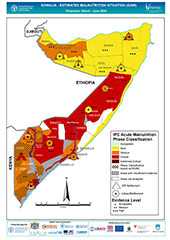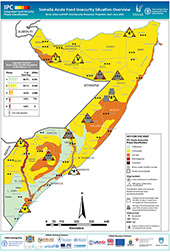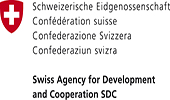Market Data Update, August 2010
Issued: September 15, 2010
 The Consumer Price Index (CPI), measured by price changes for the items included in Minimum Basket, continued to stabilize in most regions of the country during the month of August. The CPI increased marginally (2-3%) in the Northeast and Central, while it reduced (1-5%) in the Northwest and in the South. The changes in the CPI are attributable to sorghum, sugar and wheat flour prices dynamics.
The Consumer Price Index (CPI), measured by price changes for the items included in Minimum Basket, continued to stabilize in most regions of the country during the month of August. The CPI increased marginally (2-3%) in the Northeast and Central, while it reduced (1-5%) in the Northwest and in the South. The changes in the CPI are attributable to sorghum, sugar and wheat flour prices dynamics.
Prices of locally produced cereals have started to decline primarily in main cereal producing regions, an indication of increased cereal flows of the Gu seasonal harvests into the main markets. Over the last one month, local cereal prices have declined by 2-30% in most regions with largest declines recorded in Shabelle and Juba regions. Conversly, the prices appreciated by 1-5% in Central. On the other hand, prices of imported commodities have either remained stable or declined in all regions of the country with a more uniform pattern observed in the South. An exception however is a slight increase in prices of wheat flour, sugar and petrol in the North and Central.
As a result of declining prices of locally produced cereals, the purchasing power, measured by Terms of Trade (ToT) between daily labour wage and cereal, remained relatively stable in most cereal producing regions of the Northwest (NW) while increasing rapidly in the South in the last one month. While ToT (Labour to Cereal) has improved in most regions of the South and in the NW compared to the same month a year ago, it is significantly lower in Banadir (34%) mainly as a result of declining labour wage rates. The highest purchasing power increase is observed in the Shabelle and Juba regions while marginal declines were recorded in Central, Banadir and Northeast regions.
Exchange rates between Somali currencies and USD have remained relatively stable over the month of August 2010, with marginal appreciation of 1-7% throughout the country. The appreciation in exchange rate is partly attributable to increased dollar supply from livestock sales.

















